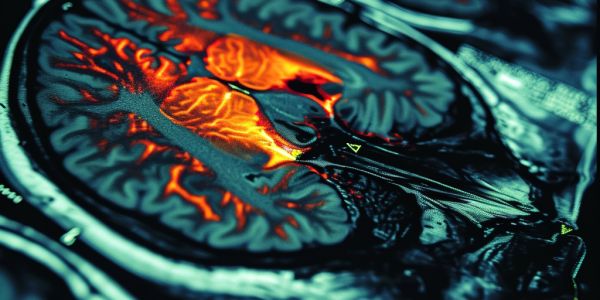Terminal Lucidity: Moments of Clarity in Dementia Patients
Learn about the intriguing phenomenon of terminal lucidity in individuals with dementia, where sudden periods of clarity and lucidity occur before passing. Researchers are studying these episodes to gain insights into brain function and degenerative processes.
Study Reveals APOE4 Homozygosity as Distinct Genetic Form of Alzheimer’s Disease
A new study reveals that APOE4 homozygosity represents a distinct genetic form of Alzheimer’s disease, with near-full penetrance of AD biology, earlier symptom onset, and specific biomarker changes. Individualized prevention strategies and treatments are emphasized for this unique genetic profile.
Study Suggests Daily Olive Oil Consumption May Lower Risk of Dementia-Related Death
A recent study by Harvard scientists suggests that incorporating a daily spoonful of olive oil into your diet could lower the risk of dying from dementia. Consuming at least 7 grams of olive oil daily was associated with a 28% lower risk of dementia-related death. The study emphasizes the importance of vegetable oils, particularly olive oil, in promoting heart and brain health, highlighting the benefits of following a Mediterranean diet.
Antipsychotic Use in Dementia Linked to Adverse Outcomes, Study Finds
A recent study published in The BMJ reveals the increased risks faced by adults with dementia who use antipsychotic medications. The research conducted by Dr. Pearl LH Mok and colleagues found that antipsychotic use in this population was linked to a higher risk of serious conditions such as stroke, heart failure, and pneumonia. Healthcare providers and caregivers are urged to carefully weigh the potential risks and benefits of antipsychotic medications in individuals with dementia.
Funding Boost for Childhood Dementia Research in South Australia
Childhood dementia research receives $500,000 funding boost from South Australian government and Little Heroes Foundation. The investment at Flinders University aims to combat Niemann-Pick Type C, a rare genetic condition leading to cognitive decline in children. Adelaide mother Renee Staska, whose children are affected by the disease, welcomes the funding and hopes for further research support. ‘State of Childhood Dementia 2022’ report underscores the urgent need for increased efforts in fighting this terminal illness.
Certain Jobs Linked to Higher Risk of Dementia, Study Finds
Certain types of jobs, such as housekeepers and construction workers, may increase the risk of developing dementia, according to a study published in Neurology. Jobs involving routine tasks were found to raise the risk of mild cognitive impairment and dementia. In contrast, occupations that require cognitive activity were suggested to have a protective effect against dementia. Education and job complexity were also identified as factors influencing dementia risk, highlighting the importance of engaging in mentally stimulating activities throughout life.
Study Finds Donepezil Does Not Increase Risk of Death or Heart Abnormalities
A recent study by McMaster University reveals that the dementia medication donepezil does not increase the risk of death or specific heart rhythm abnormalities, contrary to previous warnings. The findings, published in the Journal of the American Geriatrics Society, are based on a systematic review and meta-analysis of 60 trials involving over 12,000 individuals. This research provides valuable insights into the safety of donepezil, offering reassurance to patients and healthcare providers.
The Power of Leafy Greens: Boosting Health and Slowing Cognitive Decline
Recent research suggests that incorporating more leafy greens into our daily meals can boost health, slow down age-related cognitive decline, and even reduce the risk of bowel cancer. Leafy greens like spinach, kale, and lettuce are rich in essential nutrients that have been shown to improve memory and recall abilities. Dr. Linia Patel, a registered dietitian, highlights the profound impact of green leafy vegetables on overall health and heart health, advocating for their inclusion in our diets to enhance well-being and longevity.
Study Reveals Serious Side Effects of Common Dementia Drugs
A recent study published in the British Medical Journal (BMJ) has revealed serious side effects associated with common dementia drugs, particularly antipsychotic treatments. The research highlights the heightened risks during initial stages of treatment and the controversial nature of antipsychotic use in dementia patients. Neurologists have raised concerns about potential overprescription of these drugs, especially post Covid-19 pandemic.
Study Shows Living Near Greenery and Low Crime Rates May Reduce Dementia Risk Factors
A recent study led by Monash University suggests that living in areas with abundant greenery and low crime rates may reduce dementia risk factors. Proximity to greenspace and lower crime rates were associated with fewer modifiable dementia risk factors, particularly in individuals residing in areas with lower socioeconomic status. The study emphasizes the importance of key modifiable dementia risk factors such as high blood pressure, obesity, high cholesterol, and physical inactivity, with proximity to greenspace identified as a significant factor promoting physical activity and social interaction.










